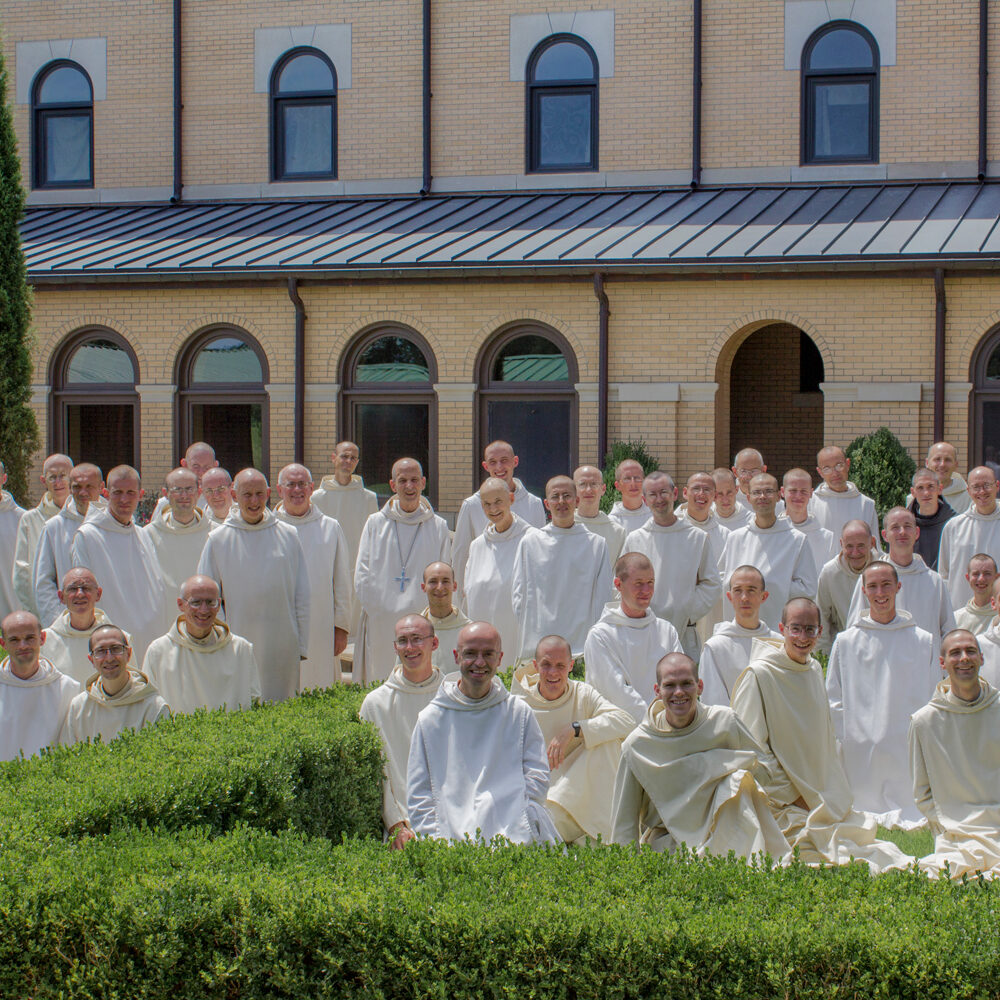Dear Brothers and Sisters in Christ,
My Very Dear Sons,
The mood of the Church these days is uneasy amid the sounds of war—even if they have not yet reached a high pitch on a global scale—and amid the ever-pressing need for true reform and authentic renewal, especially in the places where the faith and charity have grown cold and tepid, such as in Western Europe and much of our United States of America. What are we monks supposed to do to help the Church in this effort to renew the face of the earth?
In a conference given to Benedictine abbots some years ago, a Benedictine theologian made the following observation. A monk has only to “look up,” so to speak, from the page of his liturgical book or of his lectio divina, in order to do his share and bring about the desired transformation. But this will take a bit of explanation.
The allusion is to the story, recounted by Pope Saint Gregory the Great in his Book of Dialogues (chapter 31). He tells us that one day an Arian Goth named Zalla, who was savage and cruel in his persecution of devout Catholics, came up to Saint Benedict’s monastery, leading a poor peasant by a rope. The Goth was hoping that he could force the man of God Benedict to give money for the ransom of this innocent farmer. St. Benedict, in the mean while, was quietly engaged in reading in front of the monastery, not being at all worried about the approach of this ruthless murderer. When the fierce Zalla yelled out threats to the Saint, the latter merely looked up from his book, and, as his eyes fell upon the knots that bound the hands of the peasant, the rope fell off in a miraculous manner. Seeing this, Zalla fell trembling to his knees and was reprimanded by Benedict. Never was a “social issue” (as we might say in our day) resolved so quickly.
The point is that the Church’s preaching, catechizing, social action, and other active works all derive their original strength from God’s grace, working through the well-springs of contemplative prayer. Thus, there is normally no need for monks to leave their essential work, one that upholds the apostles of the active life by the power of prayer, in order to go about the highways and byways of the world. There have been some glorious exceptions to the rule, but in general the monk is intent upon God alone, only “looking up” as it were from time to time from his reading, his prayer or lectio divina, in order to resolve more practical problems. Whereas Saint Dominic walked along all the roads of Southern France, stopping to preach the Word of God in every place, St. Benedict and his sons mostly founded monasteries and stayed in them, contemplating there the eternal years of God’s love.
If there is a time and place for every purpose under Heaven, then surely no one person or institution has to accomplish all the tasks that fall upon the Church. There is Mary and there is Martha, but, in the words of Our Lord Himself, “Mary hath chosen the better part, which shall not be taken away from her” (Lk. 10:42).
With Catholics and other Christians around the world, we look with great hope to the consecration that Pope Francis is to make on the feast of the Annunciation, following Pope John Paul II’s own Act of Entrustment in 1984, in keeping with what was alluded to by Our Lady in 1917 at Fatima and asked specifically of Sr. Lucia twelve years later in 1929, that is the consecration of Russia to the Immaculate Heart of the Blessed Virgin Mary for the salvation of souls and as the pledge of true peace in the world.
May Our Blessed Father Saint Benedict, Patron Saint of Europe, intercede for us all. Amen.




